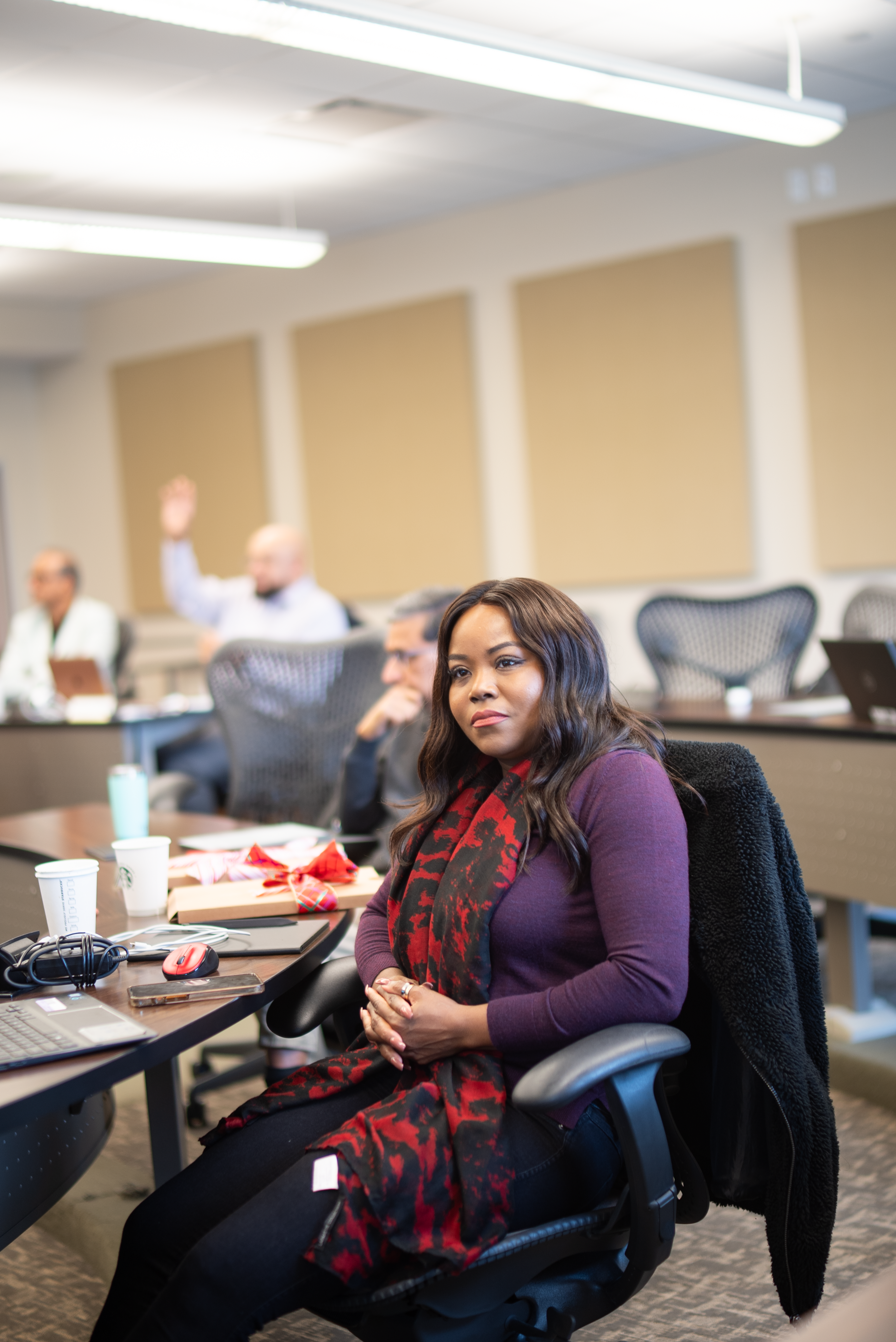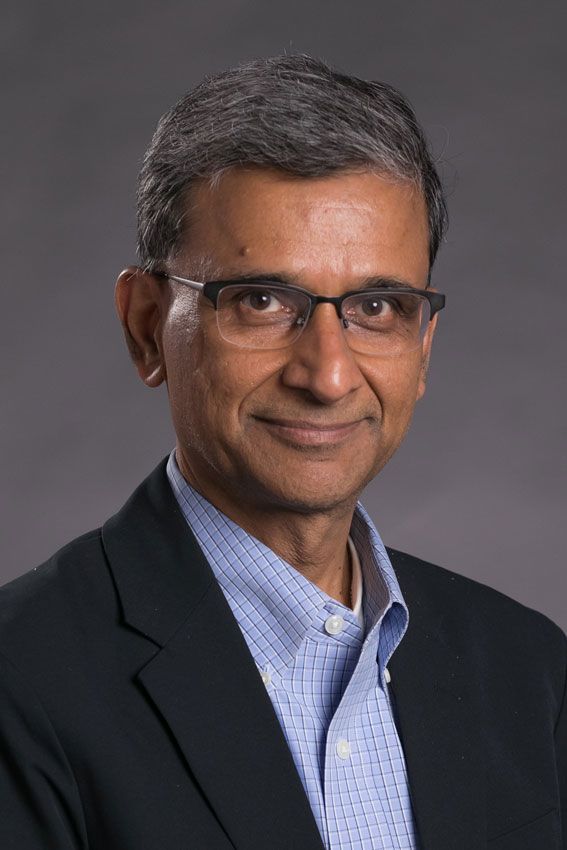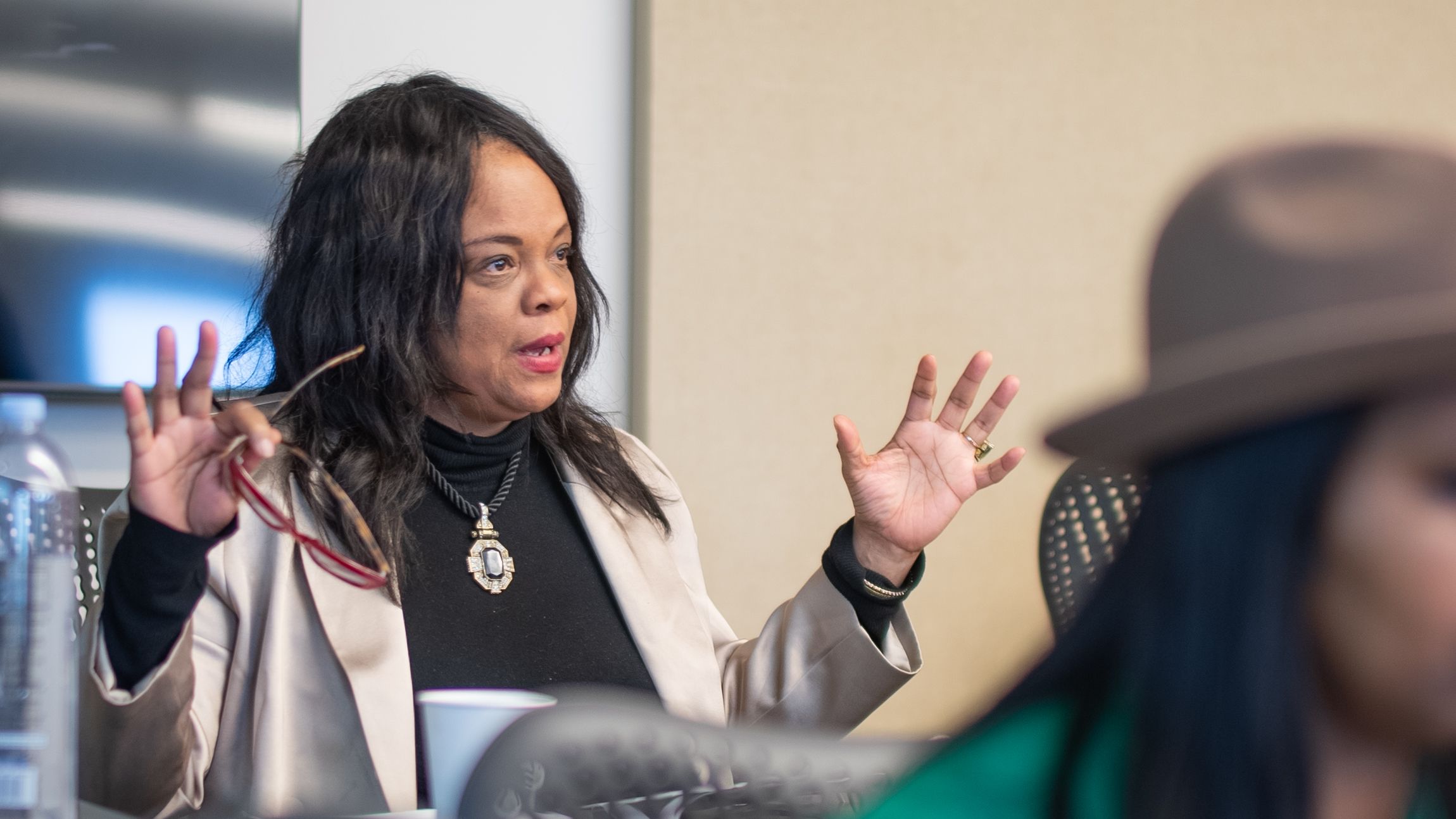Tackling Grand Challenges
Bauer Executive Doctorate in Business Administration Course Brings
Executives Back Into the Classroom

For executives enrolled in the Executive Doctorate in Business Administration (DBA) program at the C. T. Bauer College of Business, the transition back into academia may seem challenging.
The Grand Challenges in Business and Society course marks the beginning of the three-year degree program, and serves as a buffer to help executives get in the mindset of learning. The course, designed and developed by Associate Dean for Research and Marketing Professor Vanessa Patrick, assists students in their journey from business executives to scholars.
For students like Firmer Foundations founder, Murali Kuppuswamy, an industry veteran with more than 35 years of corporate leadership experience, the course serves as a bridge to a new way of thinking.
“Getting back into the classroom was both exciting and humbling,” Kuppuswamy said. “It took me about a month or so to get adjusted because you are in a completely different world. We had to learn how to create a schedule and be disciplined in what we must do, whether that is reading, writing or researching. The depth of the class laid a great foundation for the entire program.”

Murali Kuppuswamy, Founder, Firmer Foundations, LLC
Murali Kuppuswamy, Founder, Firmer Foundations, LLC
The class is based around a hybrid learning model, where students have independent reading and writing assignments and meet in-person over three residency weekends for an open-ended discussion and dialogue. Patrick explains that the Socratic seminar method that she has adopted allows the students to engage in respectful conversations on important (sometimes controversial) topics and learn from each other’s experiences.

Microsoft Corporation Senior Program Manager Tamara Taylor participates in a lively class discussion.
Microsoft Corporation Senior Program Manager Tamara Taylor participates in a lively class discussion.
“My goal was to highlight some of the big issues the world is facing and empower the students to use their skills to help solve these challenges using research as a tool,” Patrick said. “I was delighted to see the students learning and being so interested and engaged, while also developing a healthy camaraderie. I believe this is how learning should be – engaging and fun.”
As the first course in the program, the class is designed to socialize students to academic research and scholarship beginning with learning how to read research articles and write with an academic voice. The students participated in online bridge sessions in between their residencies to develop these skills.
While this class acts as a helpful transition for the students, they are still challenged to a new way of thinking and stepping out of their comfort zones to discuss real issues that face business and society.
“The world is way bigger than the couple of companies you know and have been a part of,” Kuppuswamy said. “You can have an impact on a much broader scale, or at least ask questions that are bigger than just your little world. We have people who are Army veterans, small business owners and everyone from such different national origins. This sheer diversity of the class allowed everyone’s voices to be heard and understood.”
This course is designed around “engaged scholarship,” Patrick said. Engaged scholarship is a form of participatory research - ideal for solving complex global problems - that brings together executives who have years of practical problem-solving experience with academics who understand the theoretical underpinnings of the issues at hand.
“I feel that this course is important because the only way we can solve some of the grand challenges is if industry and academia come together and work as one unit,” she said. “This means combining resources and intellect together from different practitioners to create a solution that benefits everyone.”
